THE YEAR OF THE FARM
By Ann Marie Scheidler
PORTRAIT PHOTOGRAPHY BY KATRINA WITTKAMP
STYLING BY THERESA DEMARIA
HAIR & MAKEUP BY ELIZA FISHER
Kirbey Rogic wearing alice + olivia lavender top and skirt, Neiman Marcus
By Ann Marie Scheidler
PORTRAIT PHOTOGRAPHY BY KATRINA WITTKAMP
STYLING BY THERESA DEMARIA
HAIR & MAKEUP BY ELIZA FISHER
Kirbey Rogic wearing alice + olivia lavender top and skirt, Neiman Marcus
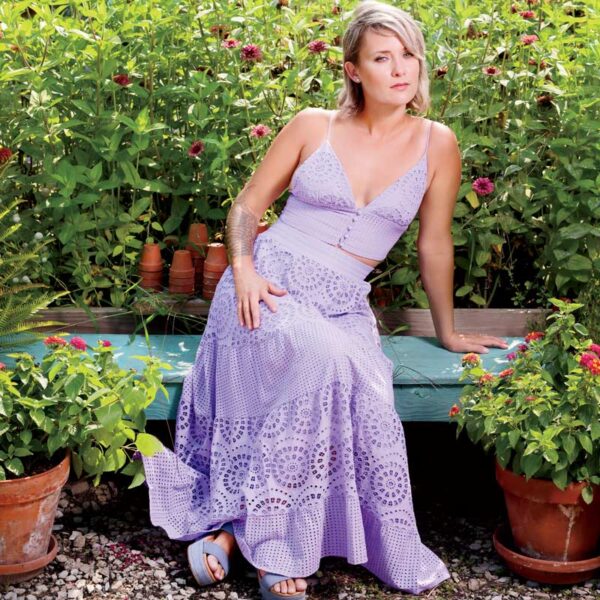
Kirbey Rogic knows well that while good things take time, sometimes you need to act fast.
In the fall of 2019, only months before the pandemic, Rogic learned that the Bahr Greenhouse, the oldest business in Highland Park and the second oldest in the state of Illinois—had come on the market. The Bahr Greenhouse had been single-family owned since the late 1800s. One of only a few glass greenhouses left in the state, the original structures and glass panes were brought in on freight trains and hand-assembled right on the property where they stand today.

“Living in Highland Park, we knew all about the Bahr Greenhouse,” Rogic says, with her characteristic contagious energy. “We weren’t the only family interested in buying it, so we had to decide quickly that this was something we were going to do. I had a clear vision for this property from the moment we made it ours.”
The property contained three glass greenhouses, a few storage structures, a house on site, and generations of treasures and memories.
“The Bahrs handed over the keys and left us everything you see here,” Rogic explains, pointing to old steel work tables on wheels, flip desks built into the walls filled with old ledgers, and the iconic “Bahr” branding sign. The three glasshouses were in great disrepair so “it took a while to get this place operational but I’ve grown to appreciate that everything that’s happening is happening because we’re doing it,” reflects Rogic.

Rogic’s parents’ involvement was key to revitalizing the business. Her father grew up in Montana in a family filled with cattle drivers and farmers. “His wisdom and knowledge have brought so much to this business,” Rogic observes. “We have a bit of a compound here. The timing worked in such a way that my parents moved into the house on the property. My dad helps me with the greenhouses, and my mom helps me with my kids. I literally couldn’t do it without them, or my husband, Mario, who is so supportive.”
Just six months into ownership, the pandemic forced the world and Rogic’s new business, The Flower House and Farm, to shut down.
“As scary as that time was, I’m grateful we had that year to see what was growing here,” Rogic says. “I’m not sure if times had been normal and we were busy that we would have had the chance to do that.”
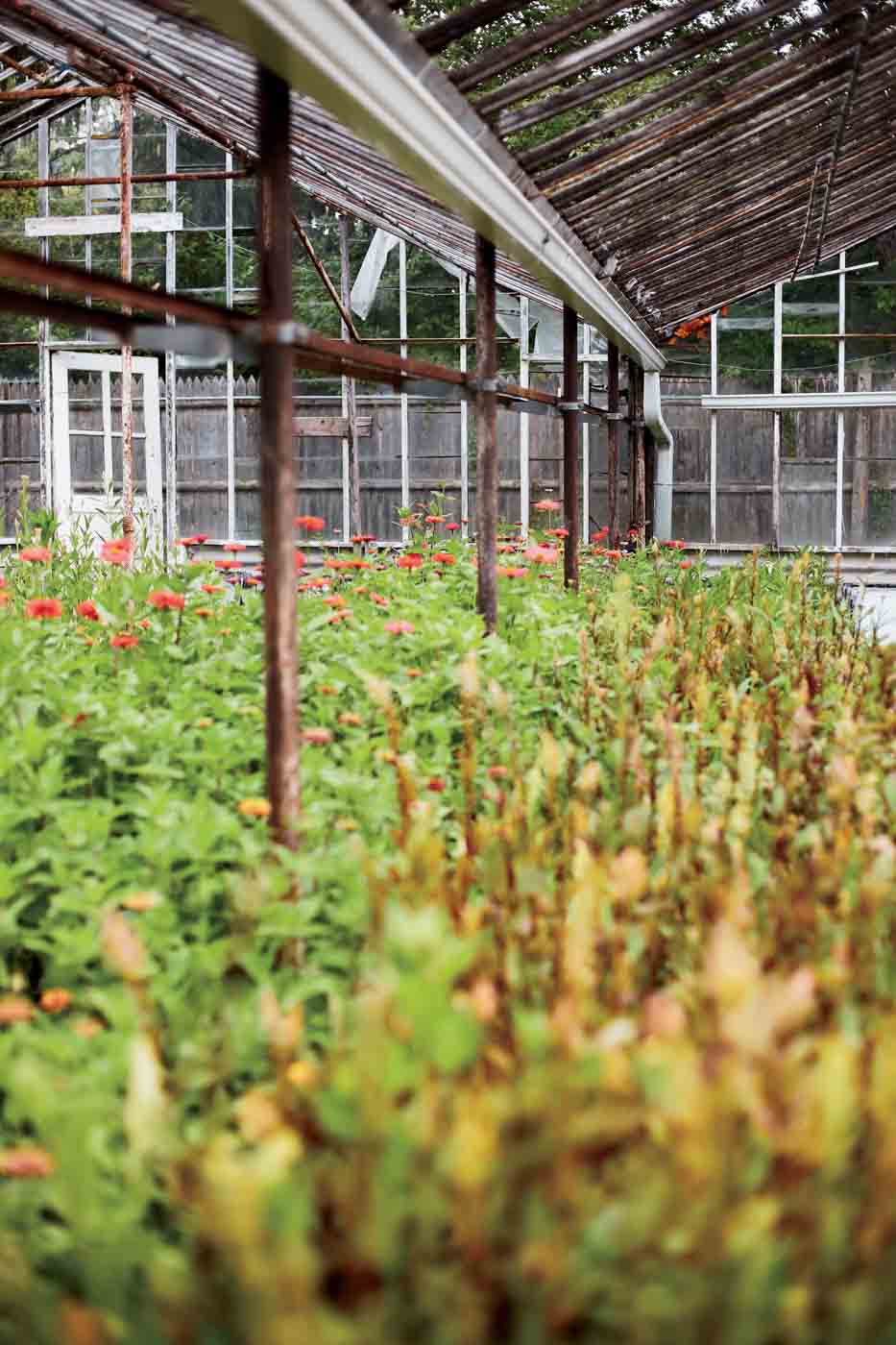
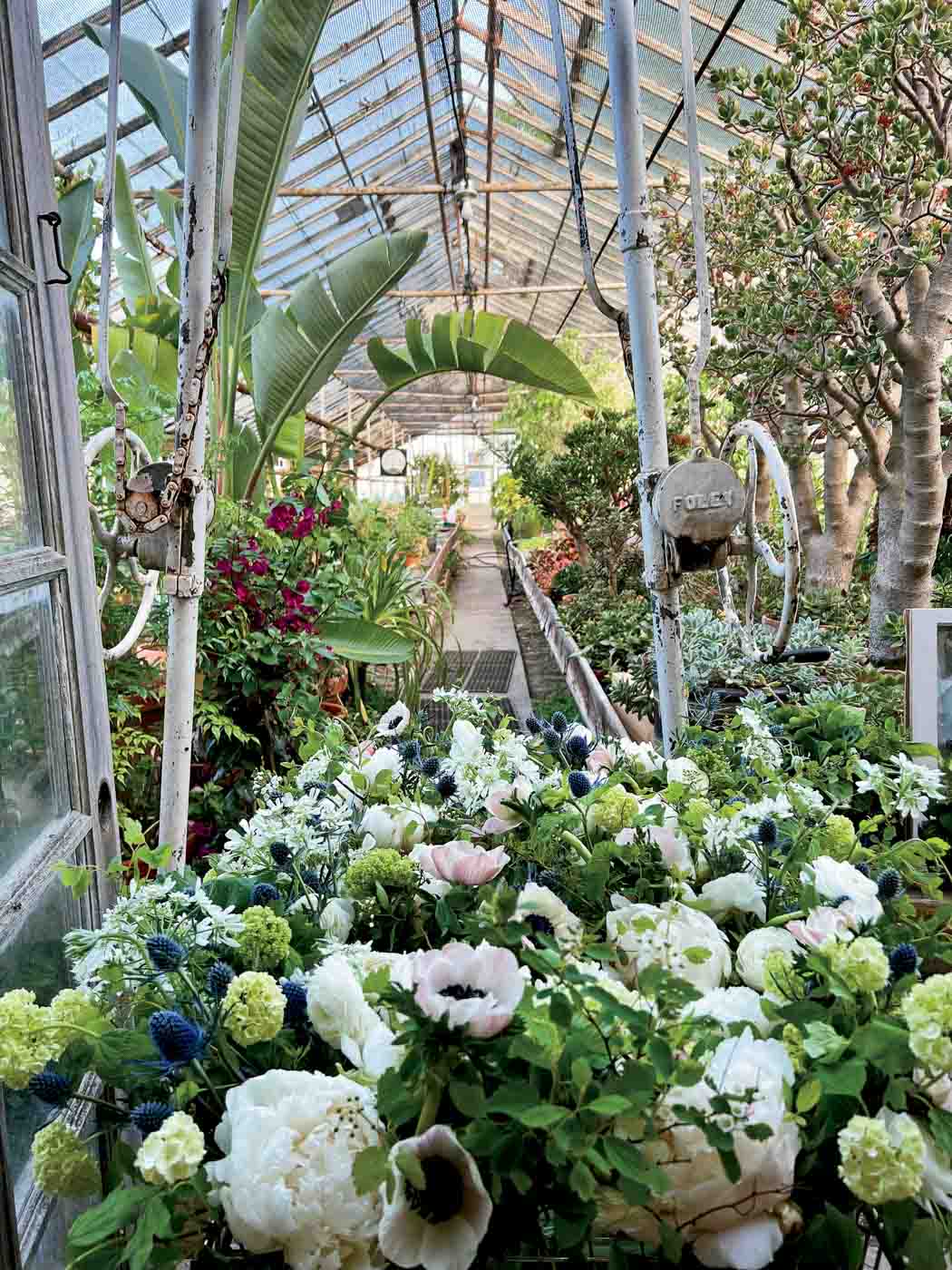
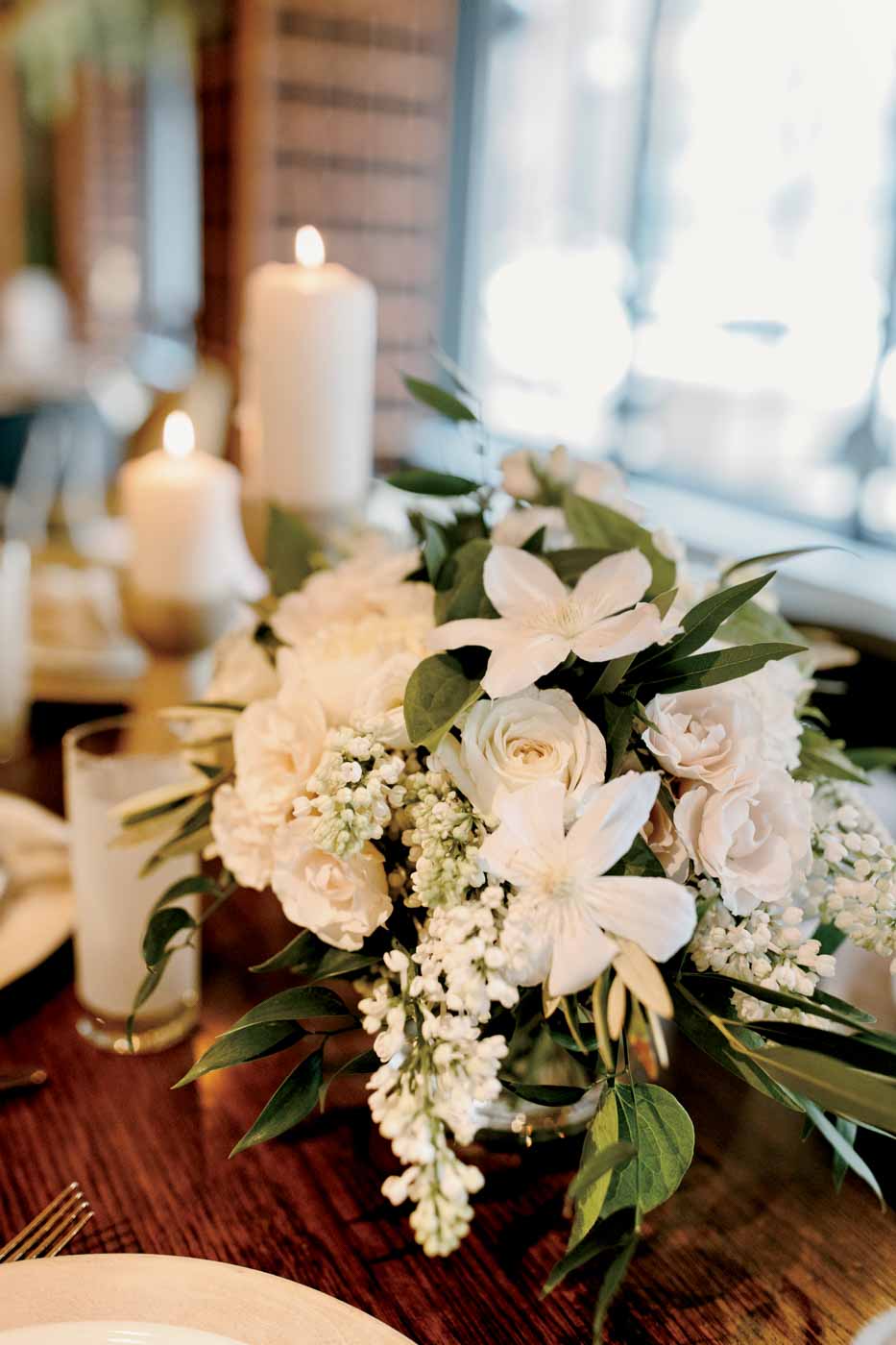
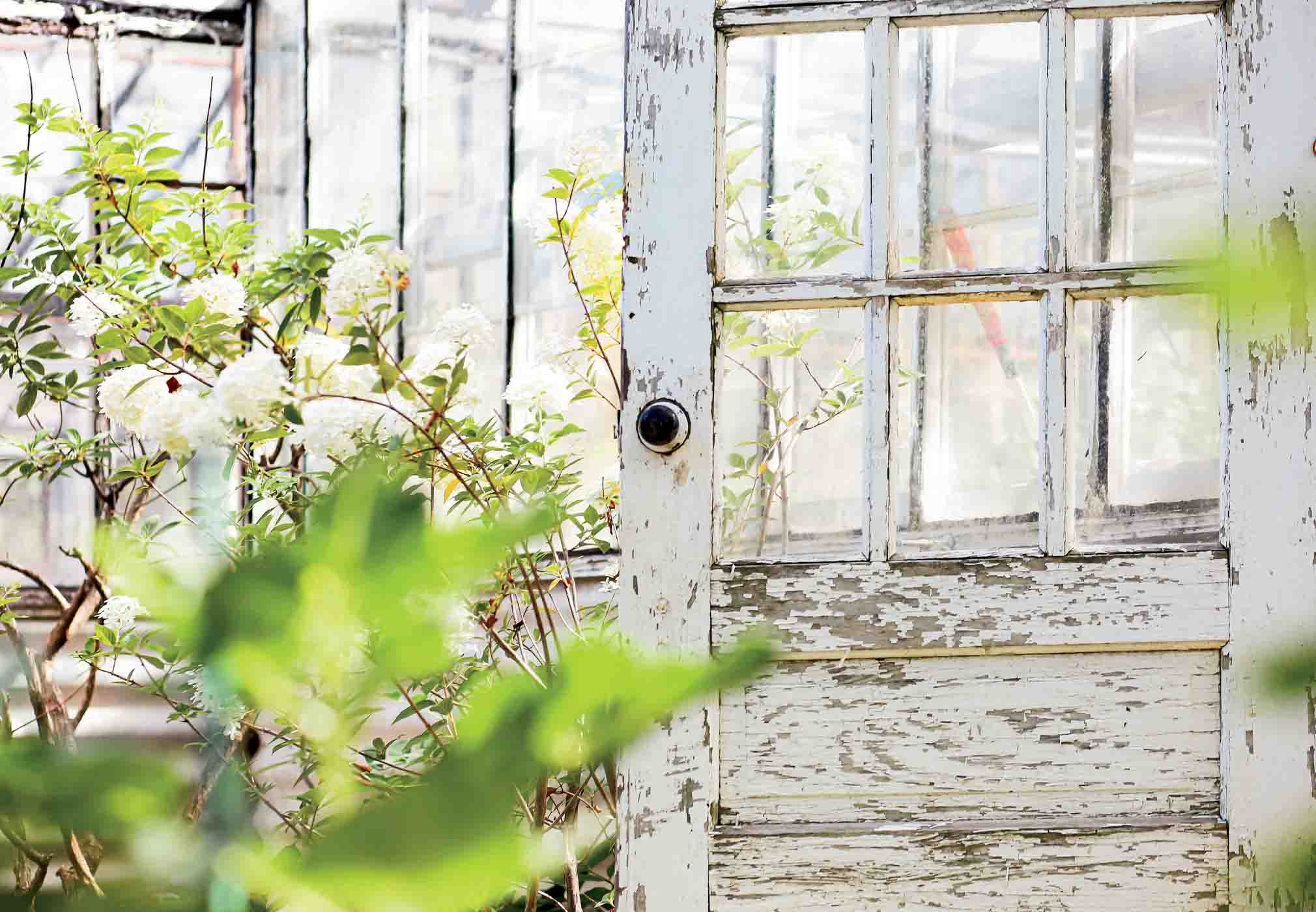
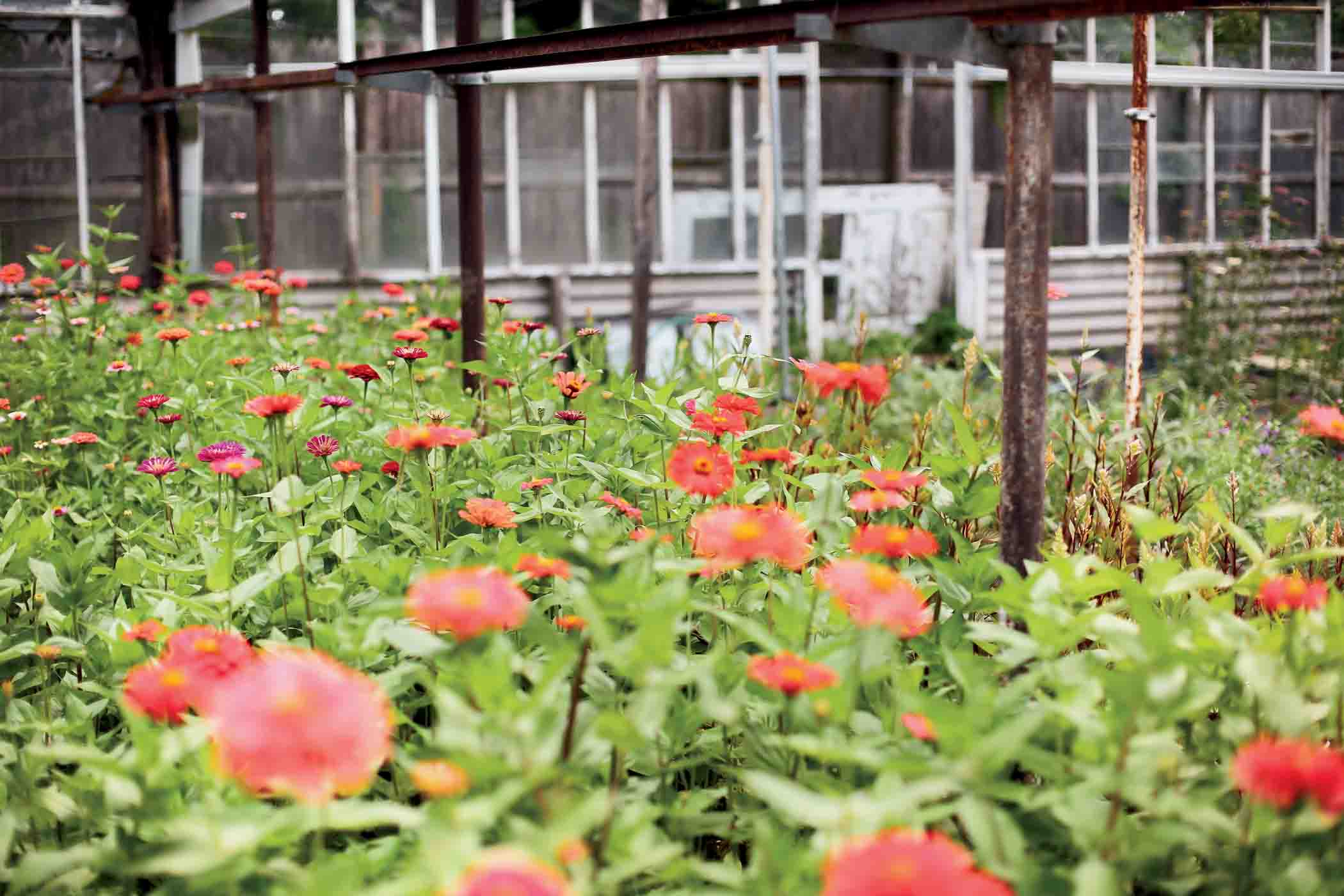
Among the gems she discovered were tropical trees, fruit trees, and 40-year-old jade trees. “We’re so lucky to have one of the Bahr’s long-time employees, Robin, come in and help us because she knows this greenhouse better than anyone,” Rogic adds. It likely came as no surprise to anyone who knows Rogic well that she took on the greenhouses. Having completed a traditional college degree in marketing and advertising, it was Rogic’s work with a florist in Evanston that planted the seeds of her future career.
“I literally bothered this flower shop owner until she hired me,” she says with a laugh. “I had no experience or any formal floral training, but it was always something I wanted to do. This woman taught me all of the basics of flowers and what it was like to have a small business.”
From here, Rogic spent the next decade working mostly from her home floral studio, making arrangements and collaborating with event designers while mothering three little girls, Luci, Olivia, and Scarlet. She even carved a little farm into the corner of her yard to grow flowers she could use.
“I’m so inspired by the European floral styles where they find creativity from their gardens, what they’re growing, and the countryside. The Europeans like their florals low and lush, kind of wild and avant-garde. I seem to resonate with that. As I’ve progressed in this industry, I’m even more drawn to this approach, probably because it’s more sustainable, as much as I can be sustainable living in Chicago,” she says. “I’ve definitely become more aware of where things grow and how they’re processed. Farming and growing are not for the faint of heart. I’m always learning.”
Today, Rogic has more than 14,000 annuals and hearty perennials that come into full abundant bloom in June and July.
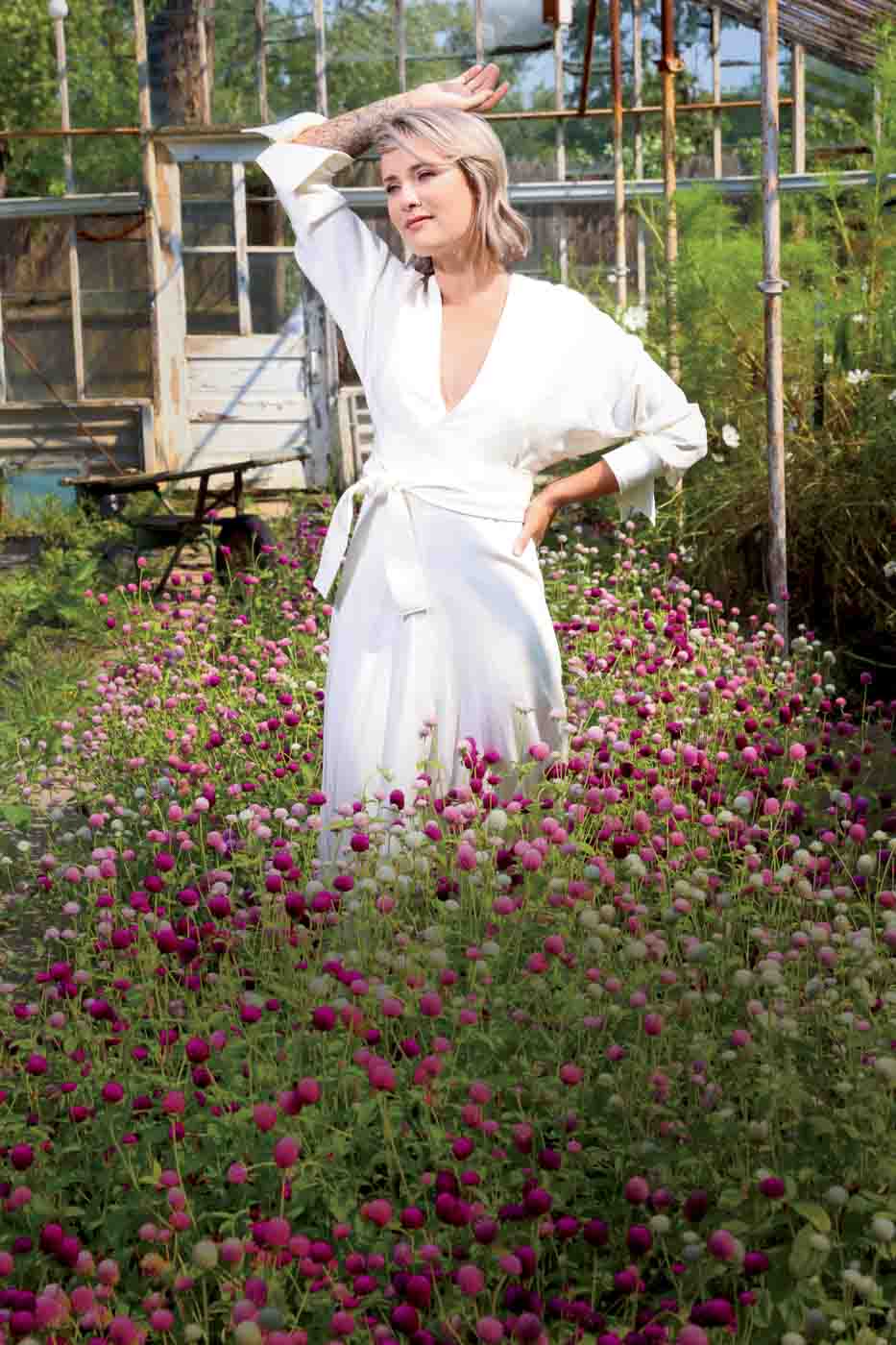
The Flower House and Farm has grown exponentially since the craziness of COVID lifted. While Rogic is confident her flowers will enhance any event, she specializes in intimate weddings and gatherings where she can put her creative spin on things and be part of the overall process. Despite all the success on the event side, Rogic has determined that 2023 will be the year to focus on the farm aspect of her business.
“I just announced to my team that this year—2023—is the year of the farm,” she says. “We have this farm that we want to make special and successful unto itself. I’m a firm believer that you can’t do everything well. You can do it all OK. You can do it all and survive. But going into this year, while we will always take on events because I love them, we’re going to be more intentional about the ones we do. They have to fill us up and challenge us creatively if they’re going to take us away from the farm because I really want to make our farm shine. I promised my husband that I would have this farm up and really running within five years, so that’s why I’ve declared that this is the year of the farm. This is the year.”
To learn more about The Flower House and Farm, visit itstheflowerhouse.com.
Sign Up for the JWC Media Email